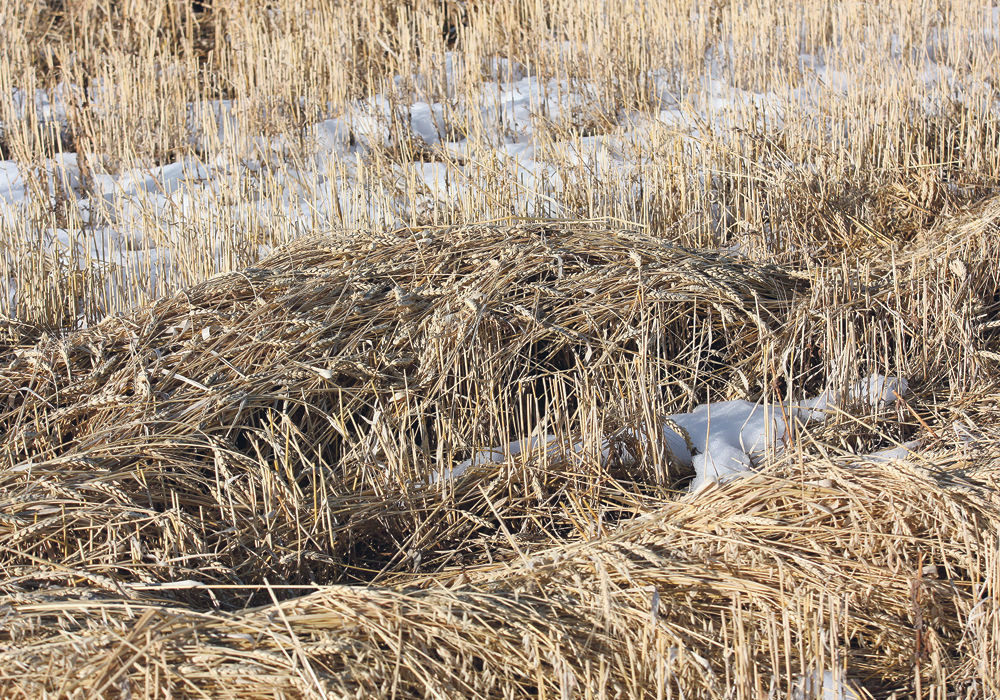Saskatchewan Agriculture Minister David Marit sympathizes with farmers who have crop left out but says he will not initiate an AgriRecovery request.
He will, however, suggest changes to business risk management programs at an upcoming meeting of his federal and provincial counterparts in Ottawa.
Details of the request were not yet available as cabinet was to discuss them this week. The ministers meet Dec. 17.
But Marit told the Agricultural Producers Association of Saskatchewan last week that something is in the works. Ministers at their annual July meeting in Quebec City agreed to hold a second meeting this year specifically to discuss BRM programs.
Read Also

Manitoba extends Crown land rent freeze
Manitoba government links the continued rental rate freeze on grazing and forage leases to economic and environmental challenges facing the industry
“We’re taking something to the table in two weeks that we think is a hell of a good idea,” Marit said.
“(However), a fundamental change doesn’t just happen because we want it to happen.”
That’s because the national agreement requires seven out of 10 provinces to agree on changes. There is also the matter of cost. Marit said when calculated on a per capita basis some changes could cost taxpayers far more in Saskatchewan than they would in Ontario, for example.
APAS delegate Norm Hall said Saskatchewan taxpayers should be prepared to pay more because by the time the current Canadian Agricultural Partnership agreement expires in 2022 the overall funding envelope for BRM won’t have changed for 20 years.
“We are working with fewer dollars than we did 20 years ago,” he said, yet the provincial growth plan wants farmers to produce more and more.
“That puts more load on everybody.”
Meanwhile, the Rural Municipality of Lipton has declared a state of agricultural disaster and last week the opposition NDP raised the issue in the legislature.
Leader Ryan Meili said he went to the area to see the devastation.
“It was heartbreaking to see field after field of swath still under snow, knowing the extreme stress that that puts on farm families,” he said during question period.
He said the RM had sent a letter to the government asking for help but had not received an answer.
The letter from Reeve Corey Senft, which also went to the federal agriculture minister, said between 30 and 40 percent of the crop is still out, most of it canola and wheat. He said between 60 and 70 percent of the crop that was harvested came off damp and required the extra cost of drying.
“Financially there are millions of dollars left in the field,” Senft said.
Meili said the province could “start by requesting an assessment of a disaster event be initiated, which could lead to farmers receiving support under the federal AgriRecovery program.”
He asked Marit to fight to restore AgriStability to its original state to offer better protection.
But Marit said he is confident of the programs that are in place, including crop insurance and AgriStability.
“There is still an estimated 2.5 million acres unharvested throughout the province,” he said.
Marit said the situation is stressful and those who are having trouble coping should call the Farm Stress Line.
But APAS delegate Marion McBride said better solutions are required because more producers are losing their farms and calls to the line are up significantly.
According to the provincial agriculture ministry, there have been 104 farm foreclosures so far this fiscal year. Last year, there were 162, which was the highest number since 211 in 2010-11.
















